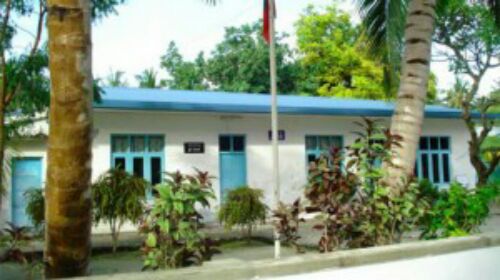The housing ministry has taken control of 13 plots of land belonging to the opposition dominated Malé City Council, and transferred the majority of the council’s public services division staff to the ministry.
According to a housing ministry announcement, all of Malé City’s streets, the Artificial Beach area, Plot 211, Usfasgandu, the T-Jetty area, Dharubaaruge Convention Center, Sultan Park, Maafannu round-about, Adi Park, Alimas Carnival, Fishermen’s Park and all other parks now belong to the ministry.
Any individual wishing to make use of these lands must now seek permits from the ministry. The State Electric Company (STELCO) and Maldives Police Services would not provide services for any events unless a housing ministry permit is obtained, the announcement said.
The move continues a steady removal of powers from the council, in what has been characterised by its officials as an attempt to destroy decentralisation in the country.
Malé City Mayor Mohamed Shihab has condemned the government’s systematic abrogation of the council’s powers and said it constituted a breach of the powers afforded to the council under the Constitution and the Decentralisation Act.
“We are now only in charge of facilitating construction in Malé, issuing death and birth certificates and cleaning mosques. But the constitution clearly states the Maldives must be administered through decentralised councils,” he said.
The government must respect Maldivian laws to attain development, he contended.
“The powerful are now abusing their powers in the Maldives. This is very sad. Ultimately, it is the ordinary Maldivian citizen who will suffer the most. Investors will not invest here. No one knows what will happen tomorrow or the day after. We have to uphold the law if we want to develop at the same levels as developing countries,” he said.
Deputy Mayor Shifa Mohamed said the council has challenged the transfer of council staff to the housing ministry at the Civil Court.
In addition to transferring council staff, the ministry had also illegally taken over the council’s assets, including dustbins and trees for a greening programme, in the public services section, she said.
Shifa has described the government’s actions as a plot “to destroy decentralization”.
On November 26, the council declared it was close to shut-down after the Maldives Police Services confiscated documents and computer systems at the Malé City Council offices under a court warrant on allegations of corruption.
The warrant, signed by the Criminal Court Chief Judge Abdulla Mohamed, said that “some council staff had shared and gained unlawful advantages from some PDF files sent to the council by Maldives Land and Survey Authority.”
The survey authority and the land registration project fall under the authority of the Ministry of Housing and Infrastructure.
The council has denied receiving such files, stating that any surveys on Malé lands would have originated from the council.
The cabinet in early November announced it had removed the council’s jurisdiction over the city’s roads after disagreements over the replanting of vandalised trees.
Opposition leader and former President Mohamed Nasheed has said the trees were uprooted by masked policemen. Police have dismissed the claims.
Local media have since reported that the ruling Progressive Party of the Maldives believes the trees were being used to curse President Abdulla Yameen.
The roads are now under the control of the housing ministry and the Maldives Road Development Corporation (MRDC) which has started cleaning the drains, bringing some alleviation to persistent flooding.
The government had suggested that the council had failed to adequately maintain both Dharubaaruge Convention Center and the roads of the capital, though the council has maintained that state funds allocated for the work was not released by the finance ministry.
The government in October also scrapped an agreement made with India–based Tatva Global Renewable Energy to provide waste management services in the capital Malé and nearby areas.
Related to this story
Malé City Council close to shut-down after police confiscate documents and server system
Newly planted areca palms uprooted on housing ministry orders
Government terminates Tatva waste management deal
Can decentralisation take root in the Maldives?

